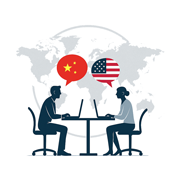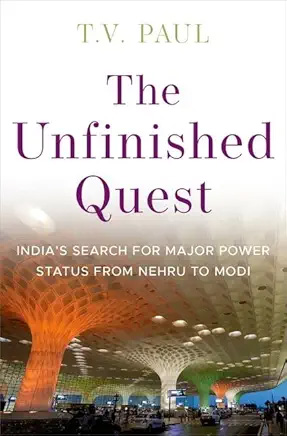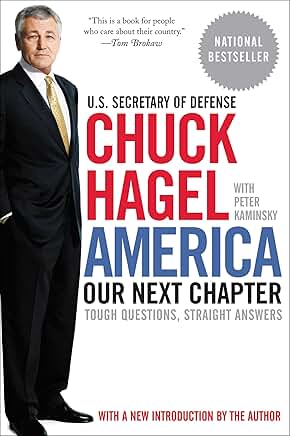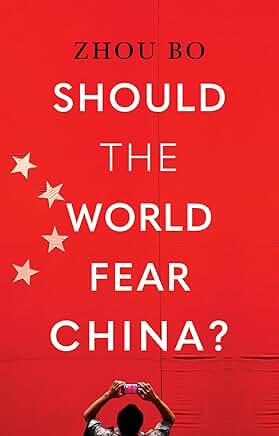Polaris

Polaris Live: Upcoming Events 2025
Live conversations with global experts on World Affairs
Thank you for your support of Polaris-Live.com “United States and China in the World".
Please sign-up for the Polaris newsletter to keep abreast of the programming.
Subscribe to Polaris Live Substack Content
You will receive professionally crafted, one-page Executive Summaries of each episode—concise, accessible, and delivered straight to your inbox. Each summary will also include a link to the full YouTube replay for those who want the complete discussion.
February 2025
February 5th 9:30 AM EST
On 20 January, with the inauguration of Donald Trump as President the United States proclaimed that world’s biggest and most powerful country was getting off the globally interconnected, rules-based system of which it was an integral part the day before.
American national interests are now going to be paramount in dealing with the world, the incoming President said, and America alone would decide and enforce its ideas of what was good for America, with financial and trade sanctions, and military power if necessary.
How is the rest of the world going to react to this new America? How will Trump 2.0’s changes impact the role of the Association of South East Asian States (ASEAN) of which Malaysia is the chair this year. And more importantly, what will be the reaction from China, the world’s other superpower and the only country that has the economic and military means to give pause to America’s might makes right rules.
Mr. Daniel is a senior fellow in the Foreign Policy and Security Studies program at the Center of Strategic and International Studies (CSIS)- Malaysia. His interests lie in the strategic-security challenges of Southeast Asia, including the impacts of major power dynamics on the Association of South East Asian Nations (ASEAN).</p<
Listen to the podcast
February 12th 9:30 AM EST
The 2nd inauguration of Donald Trump didn’t just herald the Presidency of another U.S. chief executive to lead the America for the next 4 years. It heralded a President who promised a wholesale redesign of the Presidency and the norms that channeled and guided American behavior within and without America.
Trump 2.0 is bringing forth America 2.0 – a country that will believe in might versus right, a reversal of the open trading system, a shrinkage of U.S. Departments that were considered indispensable including: Education, International AID, and a wholesale replacement of critically important Departments’ leadership and staffs by firing long time career officials and and hiring only those who have unquestioning loyalty to Mr. Trump, including the Departments of Justice, the Central Intelligence Agency, the FBI, and the Director of National Intelligence.
However, in the the attempt to re-craft the historical trajectory that U.S. has followed for generations we have only heard from the U.S. so far. How will the countries of the global south/majority react to this new unbound America? How will countries of the global south/global majority, ASEAN, BRICS, etc. not to mention China react and how will they attempt to re-draft their strategies (individually or collectively) to try and fit into a dramatically changing America, while keeping their economies and national interest reasonably intact.
Professor T V Paul
James McGill Professor of International Relations in the department of Political Science at McGill University. Paul specializes and teaches courses in international relations, especially international security, regional security and South Asia. He is the author or editor of 21 books and nearly 85 journal articles or book chapters. In September 2018, Paul became a Fellow (Elected) of the Royal Society of Canada. He delivered the presidential address on the theme: “Recasting Statecraft: International Relations and the Strategies of Peaceful Change.” In the presentation, he called for the International Relations discipline to devote more attention to strategies for achieving enduring peace among states.
Listen to the podcast

T.V. Paul • The Unfinished Quest: India’s Search for Major Power Status From Nehru to Modi
His most recent book is the best-selling, “The Unfinished Quest: India’s Search for Major Power Status From Nehru to Modi“
February 28th 9:30 AM EST
The Indo-Pacific is vital for US supremacy and as such, Trump is unlikely to drastically alter the existing structure that undergirds relations between the US and the region. Nonetheless, how Trump implements his strategies for the region is of concern for US allies, especially with his “America First” stance in foreign policy. A renewed focus on ASEAN will continue to be essential for lasting stability amid China tensions
AMBASSADOR POU SOTHIRAK
Pou Sothirak is a retired academic and Distinguished Senior Adviser to the Cambodian Center for Regional Studies (CCRS). Previously secretary of state at the Foreign Affairs Ministry, he remains an adviser to the Cambodian government. He has extensive experience in international relations through his time as a visiting senior research fellow at Singapore’s Institute of Southeast Asia Studies (ISEAS) and as Cambodian Ambassador to Japan. He was Minister of Industry, Mines, and Energy of Cambodia from 1993-1998.
Listen to the podcast
March 2025
March 5th 10:00 AM EST
The U.S. Reciprocal Tariff Plan, introduced by President Donald Trump, aims to counter perceived trade imbalances by imposing higher tariffs on countries with which the U.S. runs a trade deficit. With India-U.S. trade exceeding $125 billion in 2024, Indian exporters in many sectors face significant risks. The Indian government and industry stakeholders should respond strategically to mitigate losses.
Ajay Srivastava Founder, Global Trade Research Initiative (GTRI, an Indian research group specializing in technology, climate change, and trade. He took voluntary retirement from the Government of India in March 2022, having served as an Indian Trade Service Officer, a Group A civil service.
Ajay worked in trade policy formulation and WTO and FTA negotiations, being part of the Indian team negotiating FTAs with ASEAN, Japan, Korea, Australia, the EU, and others. He holds an MBA from the Indian School of Business, Hyderabad, and writes regularly for the Indian media including Business Standard, Hindu Business Line, and Times of India.
He is the author of books such as ‘Stop Talking, Start Exporting,’ ‘The GST Nation,’ and ‘Business Guide to FTAs.</p<
Listen to the podcast
March 12th 9:30 AM EST
David Lin is Senior Director for Future Technology Platforms at the Special Competitive Studies Project (SCSP).
Prior to joining SCSP, David served for 12 years at the U.S. Department of State and the Central Intelligence Agency, focusing on China and technology policy. His expertise includes China’s industrial strategy, data and cybersecurity policies, and digital infrastructure development.
During his government tenure, David led multidisciplinary teams providing analytic support to high-level U.S. China policy processes and served as an economic officer responsible for the tech portfolio at the U.S. Consulate in Shanghai. Prior to his government service, David worked at Computer Sciences Corporation (now DXC Technology), where he advised government clients on technology and national security initiatives. He holds a Master’s degree in Security Policy Studies and a Bachelor’s degree in International Affairs from the George Washington University.
He is the author of books such as ‘Stop Talking, Start Exporting,’ ‘The GST Nation,’ and ‘Business Guide to FTAs.
Listen to the podcast
March 19th 9:30 AM EDT
“Empires come and go; just look at world history,” says Alan Friedman, best selling journalist in his new best seller “The End of America?: A Guide to the New World Disorder.” True? Two history professors from the U.S. Military Academy, West Point weigh in.
Dr. Scott Silverstone
Professor of International Relations at the United States Military Academy at West Point, where he has served on the faculty since 2001. He holds a Ph.D. in Political Science from the University of Pennsylvania, and early in his career he was as a US Naval officer, flying for an anti-submarine warfare squadron in the Pacific and Indian Oceans, and serving as a crisis staff officer in the Pentagon. He is the author of four books on international conflict, preventive war, and crisis escalation. He is currently writing a book on the origins of the ancient Athenian empire and the Peloponnesian War in the 5th century BC.
Dr. Hugh Liebert
Professor of American Politics in the Department of Social Sciences at the United States Military Academy in West Point, New York, where he teaches courses in political philosophy, American politics, and civil-military relations. He also serves as Director of West Point’s Graduate Scholarship Program. Liebert is the author or editor of seven books, including Gibbon’s Christianity and Plutarch’s Politics, which won the Delba Winthrop Award for Excellence in Political Science. He holds a Ph.D. and M.A. from the Committee on Social Thought at the University of Chicago and a BA from Harvard University
Listen to the podcast
April 2025
April 11th 9:30 AM EDT
The Trump Administration’s tariff regime has been widely condemned by CEOs, country leaders, and Wall Street traders. Inflation and recession in the U.S. are increasingly predicted. But after being battered for a week, world markets appear to be rallying. Instead of collectively ganging up on the U.S., in anger countries are lining up to pacify American demands. So, is the era of globalization over? A new American dollars led order is descending on the world? What might this order look like?
Marc Chandler
Managing Director and Chief Market Strategist for Bannockburn Global Forex. He has covered global capital markets for more than 30 years.
A prolific writer and speaker, Chandler appears regularly in the financial media including Financial Times, Wall Street Journal, Barron’s, Bloomberg, and the Washington Post, among others. Marc also provides his insights and commentary on CNBC, Bloomberg TV, CNN, and Fox Business. His publications include, Making Sense of the Dollar and Political Economy of Tomorrow. Chandler is also an honorary fellow of the Foreign Policy Association, Associate Professor at New York University’s Center for Global Affairs and visiting professor at the Darden School of Business at the University of Virginia.
Listen to the podcast
April 16th 9:30 AM EDT
Vietnam is the smallest of the three South East Asian countries, Indonesia, Malaysia, and Vietnam, that are being called the three new tigers of Asia’s-fast growing economies.
In the three decades since it opened its economy to the world, Vietnam with a population of 100 million, has rocketed ahead and is now twice as rich as India which is many times its size. Its trade with the U.S. is over $132 billion, a trade that may well be up for grabs after the U.S. tariffs.
Luv Puri
Has worked in the field of International Affairs for two decades, both as a practitioner and an analyst. He was with the UN Department of Political Affairs for ten years, during which period he worked at the highest levels of multilateral diplomacy, including as part of the UN Secretary-General’s Office. For several years he has written for The Hindu the widely-read and respected Indian daily with a focus on issues related to Human Rights and been awarded the European Commission Award for Human Rights and Democracy.
He is a columnist on International Affairs for several widely-read publications (authory.com/Luv Puri). He has authored two books, including -“Across the Line of Control” published by Columbia University Press, and was a Fulbright Scholar from 2008-10. He did his Masters in New York University.
Listen to the podcast
April 23rd 9:00 AM EDT
Shehzad Qazi
As the firm-wide operations lead, Shehzad oversees product innovation, client services, new businessacquisition, and corporate strategy at China Beige Book International. Since 2012, Shehzad has helped develop data collection for the China Beige Book™ platform and supervised the analytics team. During this time, he has also designed innovative services and macro strategic and sectoral products for the firm’s financial markets and corporate clients. Shehzad is a frequent guest on major national news networks including CNBC, Bloomberg, and CNN and speaks regularly at investor conferences.
His articles have appeared in Barron’s, Foreign Policy, and Huffington Post among other publications. Previously, Shehzad worked at a strategic public opinion research firm and conducted market intelligence polling in emerging and frontier economies. Shehzad holds an M.A. in International Relations from New York University and a B.A. in International Studies from Indiana University. He is an elected member of the National Committee on U.S.-China Relations.
Listen to the podcast
May 2025
May 9th 9:00 AM EDT
The long history of friendship between the U.S. and Canada has ruptured, can it ever be rebuilt? What is the best Canadians can expect in the Tariff negotiations with Mr. Trump seeing that over 70% of Canada’s exports go to America? Where does Canada go to lessen its trade reliance on on the U.S..
Jeremy Paltiel
Professor of Political Science (emeritus) at Carleton University, Canada. He is author of several chapters included in edited volumes. His published articles appear in numerous publications including The China Quarterly and Asian Affairs.
Listen to the podcast
May 21st 9:00 AM EDT
Recent headline in Straits Times: “Trump blinked in Trade war with China,” Is this the image of the U.S. Tariff flip-flop in Malaysia? Is ASEAN holding together or are the bloc’s countries ready to strike their own deals? Are India and European Countries diversification candidates for Malaysia, What other countries might be likely candidates?
Doris Liew is an economist at IDEAS Malaysia, specializing in ASEAN’s economic development, regional and international trade dynamics, labor economics, poverty and inequality, and public finance.
Listen to the podcast
June 2025
June 4th 10:00 AM EDT
George Magnus
Research Associate at Oxford University’s China Centre, and at the School of Oriental and African Studies in London, and works as author and speaker. His work has been featured in many media sources including the Financial Times, Guardian, New Statesman, Politico, Prospect, Spectator, Telegraph, and the Times, and his China views are sought regularly by radio and TV. He also authored The Age of Aging (2008), and Uprising: will emerging markets shape or shake the world economy? (2011).
Since leaving UBS in 2016, George has devoted his attention to the Xi Jinping’s China and sought to analyse and explain the key drivers of China’s economic slowdown and its consequences, and the increasingly trenchant significance of China’s role in the global economy and for international relations.
Listen to the podcast
June 11th 9:30 AM EDT
Dr. Zhou Mi
Deputy Director, Institute of American and Oceania Study, Chinese Academy of International Trade and Economic Cooperation.
He has published 1 book, compiled 1 book as executive editor and has been involved in compiling 10+ books, and published more than 700 articles. He has been responsible for or taken part in more than 200 research projects to support the decision making or consulting for wide range of Ministries, Local governments, International Organizations and enterprises.
Listen to the podcast
June 17th 11:30 AM EDT
Vina Nadjibulla
Vice-President, Research & Strategy, Asia Pacific Foundation of Canada
Vina leads APF Canada’s research, education, and network support activities. She also oversees the Foundation’s granting and research fellowships programs as well as development and capacity building projects. Vina spent a significant portion of her career working at the United Nations headquarters and in peacekeeping and peacebuilding missions in West and Central Africa. She is a frequent media commentator on geopolitics, Canadian foreign policy, and Canada-Asia relations, with a focus on India and China.
Vina is also an Adjunct Professor at the University of British Columbia’s School of Public Policy and Global Affairs, a Senior Research Fellow at the Soufan Center, and a Fellow at the Canadian Global Affairs Institute.
Her current research focus includes Canada–India and Canada–China relations, as well as Canada’s engagement in the Indo-Pacific region. Born in the Soviet Union, raised in Afghanistan, and educated in the U.S., she speaks English, Russian, and Farsi.
Listen to the podcast
July 2025
July 8th 2:00 PM EDT
In just six months, the new U.S. administration has fundamentally restructured the military, resulting in diminished alliances, reduced normative standards, and less emphasis on diversity. Concurrently, there has been a shift toward a more militarily-led U.S. foreign policy that has already seen American involvement in two wars in the Middle East.
Proponents argue that this redesign enhances the military's lethality and effectiveness. But does it truly achieve that goal? More critically, does this new approach position the U.S. military to compete more effectively with its primary competitor, the People's Republic of China, which seems to prioritize winning hearts and minds over aggressive military strategies?
We will explore this evolving global order with a distinguished guest—Secretary Chuck Hagel, one of the few Americans with a remarkable career at the top levels of international business, politics, and the military.
SEC. CHUCK HAGEL
Chuck Hagel is an American military veteran who served as a United States Senator from Nebraska and as the 24th United States Secretary of Defense.
Sec. Hagel was the first enlisted soldier to serve as the SecDef. A recipient of two Purple Hearts while an infantry squad leader in the Vietnam War, Hagel returned home to start careers in business and politics. He co-founded Vanguard Cellular. Hagel served as a professor at the Edmund A. Walsh School of Foreign Service at Georgetown University, chairman of the Atlantic Council, and co-chairman of the President's Intelligence Advisory Board. He is the author of: "America, Our Next Chapter: Tough Questions, Straight Answers."
Listen to the podcast

Chuck Hagel • America Our Next Chapter - Tough Questions, Straight Answers
Senator Chuck Hagel has long been admired by his colleagues on both sides of the Senate floor for his honesty, integrity, and common-sense approach to the challenges of our times. The Los Angeles Times has praised his "bold positions on foreign policy and national security" and wondered, "What's not to like?" In America: Our Next Chapter, Nebraska-born Hagel offers a hard-hitting examination of the current state of our nation and provides substantial, meaningful proposals that can guide America back onto the right path.
September 2025
September 9th 8:30 AM EDT
Polaris Live starts its 5th year with a rare one-hour look at what's really happening to the economies of China and the United States through the eyes of trade, market, and currency experts from both countries. Will they agree on the impact of the U.S. tariffs on their countries and world? We'll find out in 4 days!
Dr. ZHOU Mi
Deputy Director, Institute of American and Oceania Study, Chinese Academy of International Trade and Economic Cooperation.
He has published 1 book, compiled 1 book as executive editor and has been involved in compiling 10+ books, and published more than 700 articles. He has been responsible for or taken part in more than 200 research projects to support the decision making or consulting for wide range of Ministries, Local governments, International Organizations and enterprises.
MARC CHANDLER
Managing Director and Chief Market Strategist for Bannockburn Global Forex. He has covered global capital markets for more than 30 years.
A prolific writer and speaker, Chandler appears regularly in the financial media including Financial Times, Wall Street Journal, Barron’s, Bloomberg, and the Washington Post, among others. Marc also provides his insights and commentary on CNBC, Bloomberg TV, CNN, and Fox Business. His publications include, Making Sense of the Dollar and Political Economy of Tomorrow. Chandler is also an honorary fellow of the Foreign Policy Association, Associate Professor at New York University’s Center for Global Affairs and visiting professor at the Darden School of Business at the University of Virginia.
-----------------------------------------------
September 16th 8:30 AM EDT
Should the world fear China? Does the U.S. now fear China? Does "Liberal World/International Order" mean the same thing in both the U.S. and China? Both China and America fought Fascism together in the Second World War, why can't they be allies again?!
ZHOU BO is a Senior Fellow at the Center for International Security and Strategy at Tsinghua University and a retired Senior Colonel in the Chinese People’s Liberation Army.
He has published more than 180 English essays and opinions in leading publications including Foreign Affairs, Financial Times, The New York Times, The Wall Street Journal, and broadcast media including BBC, NBC, DW, and is a speaker at the Shangri-La Dialogue in Singapore and at Munich Security conference. His new book is "Should the World Fear China?" Hurst Publishers, Oxford University Press.
Listen to the podcast

ZHOU BO • Should The World Fear China?
For Washington, China is a strategic competitor: the only country with both the will to reshape the world order and, increasingly, the means to do so. For Europe, the People's Republic is a "partner for cooperation, an economic competitor and a systemic rival". For NATO, it is a "decisive enabler" of Russia's war against Ukraine. Yet Beijing's image is far more positive in the Global South, of which the PRC considers itself a part.
Zhou Bo's essays unpack China's own view of its role today. The PRC is operating not only in a world becoming less Western, but--more importantly--a West becoming less Western; and the key to its outlook lies in Africa, the Middle East, and the Indo-Pacific as much as in Europe and the White House.
September 30th 11:30 AM EDT
Is the West being economically outflanked in the Middle East by China? Is the Renminbi now a strong alternative trade option for the Middle East trade? Have events in Gaza damaged U.S. trade and political prospects.
Nicolas Michelon
Managing Partner at Alagan Partners, a corporate geoeconomics consultancy in Dubai. He advises multinational companies, institutional investors and family offices on geopolitical & geo-economic risk, supply chain resilience, strategic foresight and tech startup investment in the GCC, Asia-Pacific, Türkiye and Europe. He is also a Business Partner at Alagan.Tech Solutions, an Istanbul-based sustainability and mobility solutions advisory firm.
Nicolas has worked for 15 years in Hong Kong, Singapore & Japan as an economist (French Ministry of Finance, seconded to the Consulate General of France in Hong Kong), financial analyst (KPMG in Hong Kong), portfolio manager (Schroders in Singapore) and more recently as a corporate geoeconomics and strategic intelligence consultant specialized in the Global South.
Regularly featured in business media in the UAE & Türkiye, and a conference speaker he is also an Adjunct Professor & Guest Lecturer in geopolitics, geoeconomics and strategic intelligence at ESCP Business School (Paris), Galatasaray University (Istanbul), University Mohammed VI Polytechnic (Rabat), and the Paris School of Economic Warfare, and a member of the International Consortium for the Study of Economic Leverage in Peace and Conflict (ICEL) coordinated by King’s College London.

